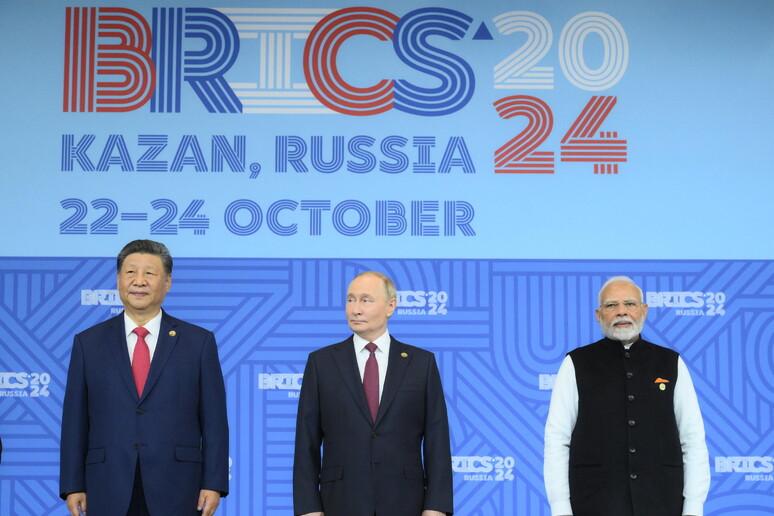Summary by Geopolist | Istanbul Center for Geopolitics:
The article elaborates on China’s engagement with BRICS and how the recent summit in Kazan reflects its broader strategic ambitions. China is advocating for expanding BRICS membership and enhancing economic cooperation, including initiatives like artificial intelligence collaborations and a customs community portal. President Xi highlighted China’s vision for the Global South and the need for a more multipolar international system. However, China’s support for BRICS is not exclusive; it continues to engage with other institutions like the Shanghai Cooperation Organization (SCO) and the Belt and Road Initiative, focusing on diverse areas to maximize influence.
The Kazan summit, held in Russia, also highlighted different dynamics between BRICS members. Russian President Putin used the summit to emphasize his standing in the international community amid Western sanctions and isolation following the Ukraine conflict. However, the group’s response to Moscow’s position on Ukraine remained cautious, with many members avoiding direct support.
China, on the other hand, used the summit to launch initiatives aimed at strengthening the BRICS economic framework. Xi Jinping’s focus was on initiatives that align with China’s strategic goals, such as promoting global partnerships in technology and customs systems, reflecting Beijing’s ambition to shift global governance toward the interests of the Global South. Xi also advocated for expanding BRICS membership further, a stance aligned with Russia but viewed with skepticism by countries like Brazil and India.
Despite its enthusiasm for BRICS, China’s broader international strategy includes involvement in multiple institutions, allowing it to pursue its interests through various channels. For example, China is heavily involved in the Shanghai Cooperation Organization (SCO), especially to address transnational issues in Central Asia, which are strategically important for western China’s security and development. Beijing also promotes the Forum on China-Africa Cooperation and the Belt and Road Initiative as complementary to BRICS, targeting different regional and thematic areas.
This multilateral engagement allows China to maintain influence across different global platforms and align its interests in diverse regions, reducing reliance on any single institution. Beijing’s diverse approach also helps mitigate the risk of a Cold War-like confrontation, as it avoids relying solely on the Sino-Russian partnership, which could lead to polarizing global blocs. Instead, China promotes a vision of multipolar global governance that emphasizes the role of rising powers in reshaping international norms and systems.
Read more here.







